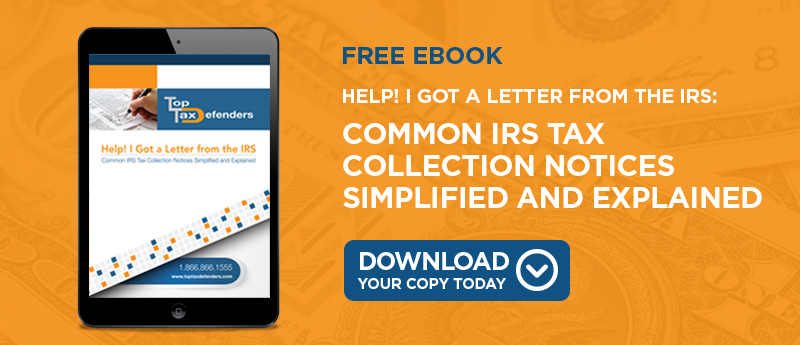
The IRS may seem like a scary government entity that wields too much power over your everyday life. In reality, taxpayers like you are given the proverbial upper hand in terms of how you can pay what you owe. When you have an outstanding IRS balance, you should keep these five important facts in mind before you decide what repayment or settlement option you want to use to resolve your federal tax debt.
Repayment Options
People who owe money to the IRS actually have a number of different repayment choices to resolve their debts. You can opt for solutions like:
- Offer in Compromise, or OIC: An OIC lets you settle your debt for less than what you owe. The offer you make to settle the account must be realistic and based on your income and assets.
- Hardship suspension: A hardship suspension grants you a temporary reprieve due to financial hardships or other extenuating circumstances. You must eventually pay your debt plus any penalties, fees, and interest.
- Installment agreement: An installment agreement lets you pay off your debt with monthly payments. The payment amounts are based on your household income.
- Chapter 7 bankruptcy: Some but not all federal tax debts may be forgiven through a Chapter 7 bankruptcy.
Each of these options requires that you meet specific criteria. You can find out more about these choices by visiting with a tax professional or by going to IRS.gov.
Download our FREE guide to fighting IRS collections >>
Written Notification
The IRS must notify you in writing about your tax debt. These written notifications are sent by regular or certified mail.The IRS will not email or call you about your debt. You should be wary about any email or phone call that indicates it comes from the IRS.
You also should not ignore the written letters as they contain vital details about your tax debt. Some of the information found in these notifications include:
- how much you owe
- what and when any penalties, fees, and interest are applied to the debt
- the address to mail payments
- IRS customer service telephone numbers and email addresses
Due Process
As a U.S. citizen, you are entitled to due process. Due process ensures that the IRS cannot levy your assets, garnish your income, or take other action against you until you are given the chance to request a hearing.During the hearing, you can contest the debt and show proof of why you may not owe any or all of it. You are also entitled to legal counsel before and during the hearing.
Representation
You have the right to retain professional tax advice or representation anytime you owe the IRS money. You can hire a CPA, tax adviser, or a tax attorney. This professional can represent you in hearings, advocate for your best interests in settling the debt, and act as your intermediary while communicating with the IRS on your behalf.No Imprisonment
Finally, you should remember that you cannot be put in jail for not paying your tax debt. If you cannot pay what you through any of the payment options or by having your assets and income levied or garnished, you do not have to fear being imprisoned.
However, you can be jailed if you lie to the IRS, hide assets and income, or cheat on or evade paying your taxes. These offenses are often punished with lengthy sentences in federal prison.
These five important facts should be foremost in your mind if you owe the IRS money. They remind you that you have rights as a taxpayer and that you have options for repaying or settling what you owe.


